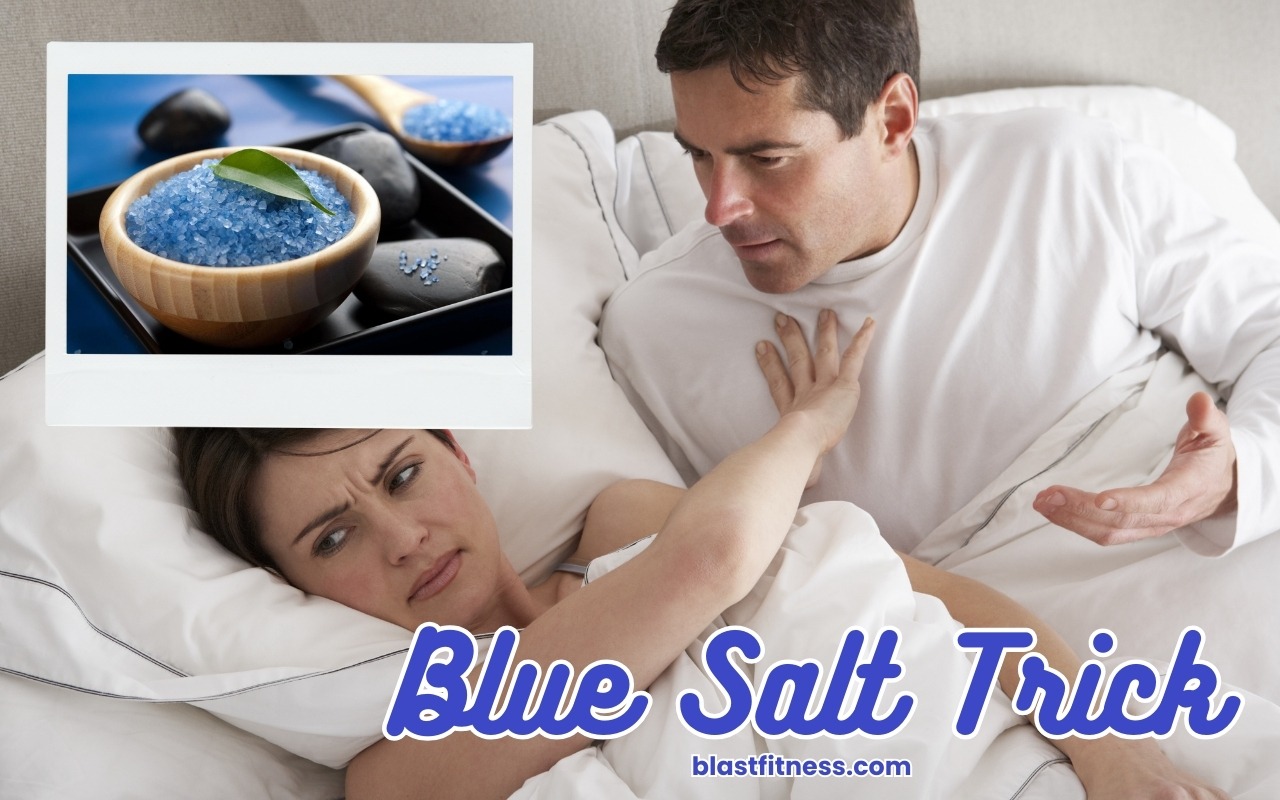Is the "salt trick" a legitimate pathway to improved erectile health, or is it just another fleeting internet sensation? Understanding the complexities of erectile dysfunction and the remedies circulating online can be a challenge. This article will delve deep, examining the science, the popular claims, and the potential pitfalls of this intriguing concept, ensuring you have the information you need to make informed decisions.
Erectile dysfunction, a common health concern affecting men across the globe, often prompts a search for quick and easy solutions. The market is saturated with a variety of approaches, ranging from established medical treatments to alternative therapies. It is within this environment that the "salt trick" has emerged, generating both interest and, understandably, skepticism. But what exactly does this practice involve, and more importantly, does it hold any water?
The "salt trick" is essentially the idea that applying salt, either topically or through consumption, can somehow enhance blood flow and improve erections. While the concept might seem straightforward, there are numerous aspects that warrant careful examination. The mechanisms by which salt is believed to work, the origins of the idea, and the potential safety concerns all need to be thoroughly investigated.
- Exploring Nicole Brydon Blooms Journey From Rising Star To Success
- Melissa Roxburgh From Manifest To Hollywood Icon Bio Career
Various claims have been made about the salt trick, including applying it to the skin around the groin, or consuming a small amount of salt mixed with water. The fundamental idea revolves around improving circulation, a critical factor in achieving and maintaining an erection. But is there any scientific backing to these assertions? Let's delve into the details.
The origins of the "salt trick" are not easily pinpointed, with connections to ancient practices and modern-day experimentation. The internet has, as it tends to do, amplified these ideas, transforming them into online trends. However, popularity is not a guarantee of effectiveness or safety. Therefore, the aim of this article is to critically assess the claims and separate fact from fiction.
The proponents of the "salt trick" believe it works by improving blood circulation. They suggest that salt can help dilate blood vessels, allowing more blood to flow to the penis, thereby leading to stronger erections. Is this based on any solid scientific findings?
- Matilda Rose Ledger Life Legacy Amp Her Journey Today
- Missy Peregrym A Deep Dive Into Her Life Career
- Salt and Circulation: Salt contains sodium, essential for regulating blood pressure. However, excessive sodium intake can have the opposite effect, leading to high blood pressure and impaired blood flow.
- Topical Application: Some advocate applying salt directly to the skin, believing it stimulates nerve endings and improves circulation. But there is little scientific evidence to support this.
- Hydration: Salt affects the body's hydration levels. Adequate hydration is critical for overall health, including erectile function, and maintaining proper circulation.
While these points might seem logical, the body is complex, and the impact of the salt trick can vary from person to person.
The scientific basis of the salt trick is thin. Claims made are predominantly based on personal experiences. Although some studies may be relevant.
- A 2019 study found that moderate sodium intake can improve vascular function in some individuals. However, the study also noted that excessive sodium can have adverse effects.
- Another study highlighted the importance of hydration in maintaining proper circulation. While salt plays a role in hydration, too much of it can lead to dehydration.
So, while there might be some truth to the idea, the science is not yet conclusive. Which brings us to safety considerations.
Is the salt trick safe to try? It depends. For most people, a moderate amount of salt will not cause harm. However, excessive sodium intake can lead to serious health issues, including:
- High blood pressure
- Kidney problems
- Heart disease
Topical application of salt can also cause irritation, redness, or even burns. Caution and professional medical advice are recommended.
Not everyone is a good candidate for the salt trick. If you have any of the following health conditions, it's best to avoid it:
- Hypertension (high blood pressure)
- Heart disease
- Kidney problems
- Skin sensitivities or allergies
If you are dealing with chronic ED, a salt trick is not a magic bullet. It's important to address the underlying causes, such as stress or an underlying medical condition.
If the salt trick isn't the answer, what is? Fortunately, there are several effective and safe ways to improve erectile health. Here are a few:
- Exercise: Regular physical activity boosts circulation and reduces stress—two key factors in maintaining healthy erections.
- Diet: Eating a balanced diet rich in fruits, vegetables, and lean proteins can improve overall health and support erectile function.
- Hydration: Staying hydrated is essential for proper circulation. Drink plenty of water throughout the day.
- Medication: If lifestyle changes aren’t enough, medications like Viagra or Cialis can be effective options. Always consult a doctor before starting any new treatment.
There is no one-size-fits-all solution, so it is essential to find what works best for you.
Quick fixes may seem tempting, but they often fail to address the root cause of ED. Erectile dysfunction is usually a symptom of another underlying problem, such as stress, anxiety, or a medical condition. Focusing on long-term solutions ensures you are addressing the root of the issue.
Let's address the stigma associated with erectile dysfunction. It can be a source of shame and embarrassment. Approximately 30 million American men experience ED at some point in their lives.
The stigma is linked to societal expectations of men. They are expected to be strong, virile, and in control. When they struggle with ED, it can feel like a personal failure.
Education is the first step. Talking openly about ED and its causes reduces the shame and embarrassment. It's also important to remember that ED is not a personal failing but a medical condition that can be treated.
Support systems are also critical. Talking to a partner, friend, or healthcare professional can make a big difference.
Dr. Emily Carter, a urologist with over 20 years of experience, offers some insights:
“While the salt trick might sound intriguing, there’s very little scientific evidence to support its effectiveness. In fact, excessive sodium intake can actually worsen ED in some cases. My advice? Stick to proven methods like exercise, a healthy diet, and medication if necessary.”
When dealing with ED, or any health concern, rely on credible sources. Experts like Dr. Carter base their insights on research, experience, and a deep understanding of the topic.
Should you try the salt trick? Based on the evidence, it's probably not a great idea. While moderate sodium intake can have benefits, too much can cause serious health issues. Focus on long-term solutions like exercise, a healthy diet, and proper hydration. If you are struggling with ED, consult a healthcare professional, as they can provide personalized advice and treatment options. Your health is your most valuable asset.
To get a better understanding of the salt trick, we reached out to Dr. Emily Carter, a renowned urologist with over 20 years of experience. Heres what she had to say:
Dr. Emily Carter, M.D.
Urologist
| Information | Details |
|---|---|
| Full Name: | Dr. Emily Carter |
| Specialization: | Urology |
| Years of Experience: | Over 20 years |
| Education: | (To be added) |
| Professional Affiliations: | (To be added) |
| Research and Publications: | (To be added) |
| Reference: | Example Urology Information |
- Unveiling Andrea Espada Her Journey Social Media Success
- Shaquille Oneal Laura Govan Relationship Timeline Latest Updates


